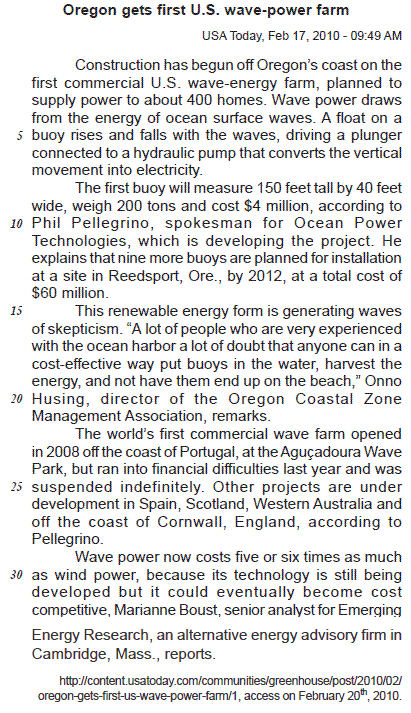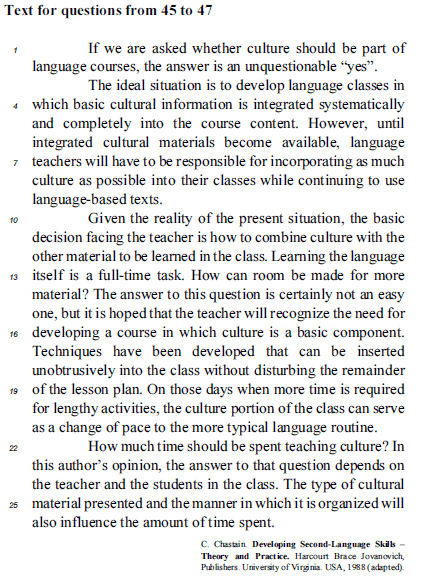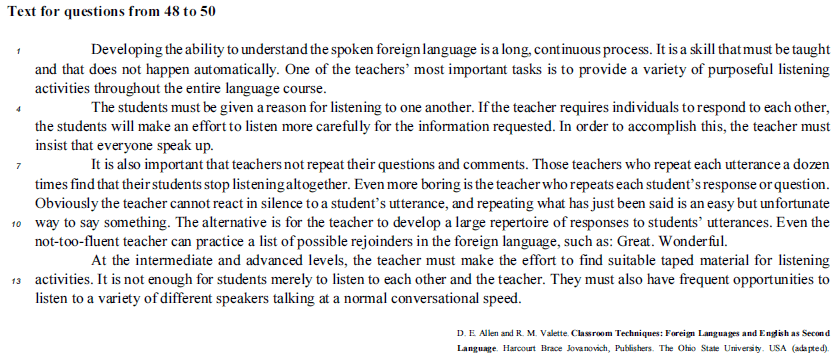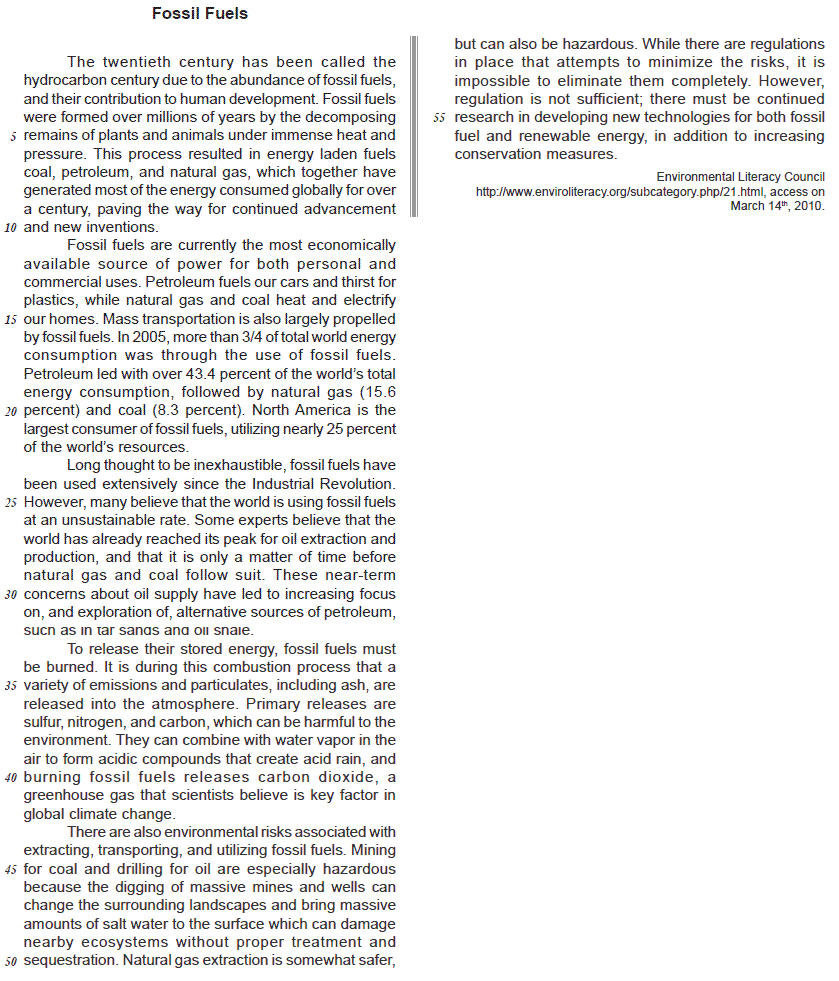Questões de Língua Inglesa do ano 2010
Lista completa de Questões de Língua Inglesa do ano 2010 para resolução totalmente grátis. Selecione os assuntos no filtro de questões e comece a resolver exercícios.
The Portuguese phrase that correctly translates the verb form "will have overtaken" in the sentence "The number of urban dwellers will for the first time have overtaken the number of rural dwellers in the world in 2008."(lines 37-39), is
- A.
irá igualar.
- B.
terá superado.
- C.
deverá suplantar.
- D.
começará a alcançar.
- E.
deveria ter excedido.
"O agronegócio respondeu em 2007 por cerca de 24% da sconomia brasileira."(lines 6-7) Which of the following presents a correct semantic correspondent in standard English to the sentence above?
- A.
By 2007, the farming industry had generated almost 24 per cent of Brazil's economy.
- B.
In 2007, agribusiness accounted for approximately 24 per cent of the Brazilian economy.
- C.
Agricultural production amounted to somewhat less than 24% of Brazilian economics.
- D.
Agricultural business represented in 2007 short of 24% of Brazilian economics.
- E.
Business in agriculture stood for over 24% of the economy of Brazil in 2007.
Which pair presents an INADEQUATE translation into English of the fragment taken from the text?
- A.
"E ainda compensou o comportamento praticamente estável..." (lines 21-22) / And yet it compensated the hardly stable behavior...
- B.
"A julgar pelo comportamento do setor..." (line 25) /Judging from the behavior of the sector
- C.
"Só nos primeiros seis meses de 2008, (line 40) / Only in the six first months of 2008
- D.
"Vale a pena destacar o crescimento..." (line 43) / It is worth noting the growth
- E.
"Por conta do aumento da demanda pelo etanol," (lines 44-45) / Due to rising demand for ethanol
A semantic equivalent in English for the excerpt "(mais de um terço de tudo o que o Brasil exportou no ano passado)." (lines 37-38) is
- A.
Up to one third of all Brazilian exports in the preceding year.
- B.
Over one third of everything exported to Brazil the previous year.
- C.
More than one third of everything Brazil exported last year.
- D.
No further than one third of everything Brazil exported the past year.
- E.
Above one third of all that was exported from Brazil the following year.

In ...and not have them end up on the beach, (line 19), the pronoun them refers to
- A.
renewable energy form(s) (line 15)
- B.
waves of skepticism (lines 15-16)
- C.
people (line 16)
- D.
a lot of doubt(s) (line 17)
- E.
buoys (line 18)

The term in parentheses expresses the idea introduced by the term in bold in
- A.
Instead, they made radical changes to their initial models, lines 3-4 (replacement).
- B.
Unfortunately, they are usually wrong. line 15 (reason).
- C.
Alternatively, some good ideas take something in customers lives thats pretty boring lines 45-47 (cause).
- D.
Next, youll need to identify some analogs, line 50 (exemplification).
- E.
beliefs you hold about the answers to your questions despite having no real evidence lines 64-66 (consequence).

The word might in you have a solution that might work. (lines 44-45) can be replaced without change in meaning by
- A.
must surely.
- B.
will certainly.
- C.
may probably.
- D.
can eventually.
- E.
should definitely.

The verb depends (R.23) can also be collocated with
- A.
of.
- B.
upon.
- C.
with.
- D.
for.

The relative pronoun who(R.8) can be correctly replaced by
- A.
which.
- B.
that.
- C.
whose.
- D.
what.

Based on the meanings in the text, the option in which the two words are synonymous is
- A.
...largely... (line 15) locally
- B.
...inexhaustible,... (line 23) finite
- C.
...harmful... (line 37) beneficial
- D.
...hazardous... (line 45) dangerous
- E.
...minimize... (line 52) increase


